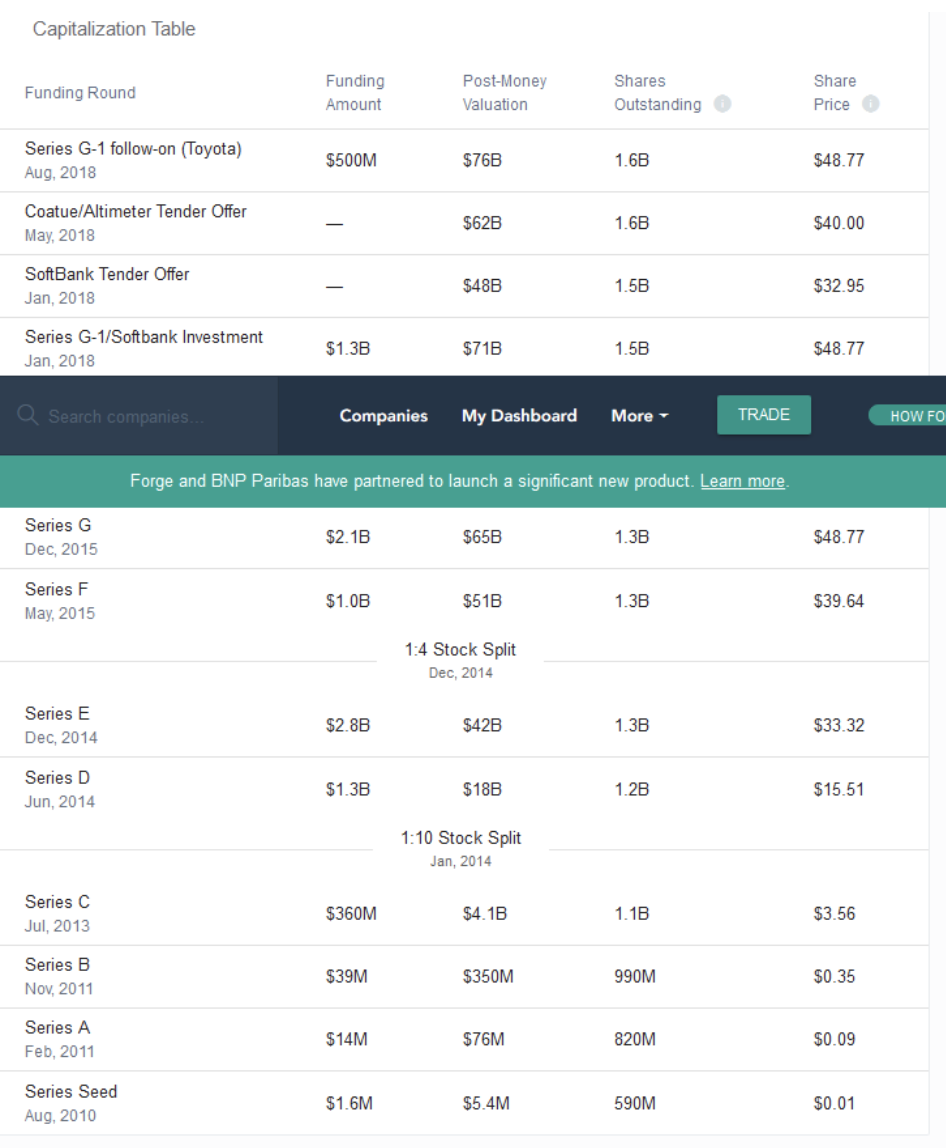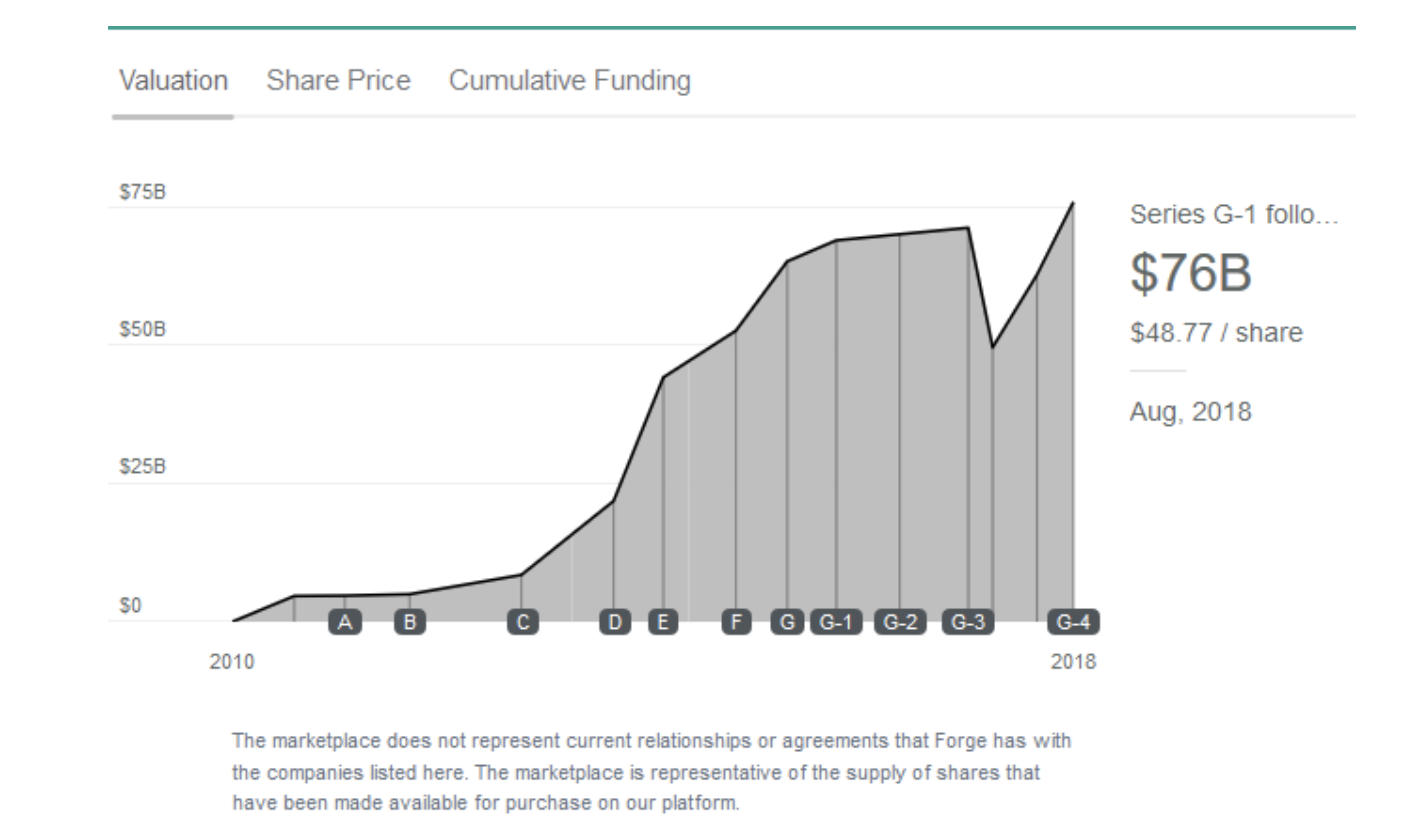In a year of blockbusters IPOs, Uber Technologies Inc.’s (NYSE:UBER) stands out for sheer size: the $90 billion valuation the company has been seeking makes it nearly as big as General Motors (NYSE:GM) and FedEx Corp (NYSE:FDX) combined. But that’s not the only reason why this IPO is so eagerly anticipated. Unlike recent mega-IPOs by companies such as Facebook, Inc. (NASDAQ:FB), Alibaba, Inc. (NYSE:BABA) or Visa Inc. (NYSE:V), Uber is deeply unprofitable.
That is perhaps the reason why the world’s largest ride-sharing company has decided to price its shares at just $45/share, the lower range of its suggested $44-$50 per share. The lower valuation is still expected to raise $8 billion and give the company a valuation of $75 billion.
The Friday IPO also came at a pretty inopportune time after the disastrous listing of its ride-hailing little brother, Lyft Inc. (NASDAQ:LYFT), whose shares have tanked 30 percent since its late March listing.
Nevertheless, there’s a group of Uber investors that’s teed up for big returns regardless of the direction the shares take.
Private equity killing
Four years ago, Goldman Sachs’ private wealth clients bought high-yielding Uber convertible bonds that are set to turn into shares when the company goes public. Four years ago the company was valued at ~$50B, but here’s the main icing on the cake--the convertible bonds, which raised $1.6 billion for the company, allowed Goldman’s clients to get a deeper discount on the stock the longer the company remained private.
The result? Those investors will now get a 40 percent discount on Uber shares once it goes public, or a $1 billion paper profit. Meanwhile, interest on the bonds has steadily climbed, reaching a high of 12.5 percent for clients who have stuck around the longest. The convertible shares will result in dilution of the company’s stock to the tune of a 3.4 percent stake worth around $2.3 billion.
Newly-listed companies usually have a lock-in period, typically lasting 90-80 days, when insiders are prevented from selling the shares.
Lock-in periods typically apply to company insiders including the founders, owners and employees but may also apply to early private investors including venture capitalists. The main purpose is to prevent this group of investors from flooding the market with the shares once the company goes public. Even assuming Uber shares Lyft’s fate and conk post-IPO, Goldman Sachs’ private clients will most likely manage to rake in some handsome profits once the lock-in period is over.
Related: Morgan Stanley To Exit Russia As Sanctions Bite
That’s a clear demonstration of the big potential offered by private equity investments. Yet, the returns here are by no means atypical as Uber’s charts below prove.

(Click to enlarge)

(Click to enlarge)
Source: Forge
Uber IPO goes live
Uber executives have just rung the opening bell at the New York Stock Exchange on Friday morning, managing to sell 180 million shares at $45 apiece and raising $8.1 billion in fresh capital thus valuing the company at $82.2 billion. The pricing has come in at the lower range of $44 to $50 and also below the $48.77 at which private investors bought the shares three years ago.
It’s still too early to tell how the shares will move. Company CEO Dara Khosrowshahi is optimistic that the conservative pricing is a fair reflection of the current market environment: “…We thought that at this price it reflected the environment,” he told CNBC on Friday morning. “We wanted to put our stock with a group of funds that we know are not going to hold for the next week but for the next year or more.”
Related: Brazil’s Top Hedge Fund Dives Head First Into Petrobras
Uber’s private investors have become increasingly discontent with what they see as the company’s excesses, including its self-driving car segment which accounts for nearly a third of its losses. Instead, they prefer the company stops trying to become a jack of all trades and follow Lyft’s route.
On Thursday, Lyft announced that it will begin to offer self-driving car rides by Alphabet, Inc.s’ (NASDAQ:GOOG) Waymo in suburban Phoenix in what promises to become the bigger commercial deployment of robo taxis so far. Additionally, Uber has pivoted into less profitable businesses such as its food-delivery business, Uber Eats, which is also reputed to be a money-loser.
It’s going to be interesting to see whether the company will be able to continue with its Amazon-esque trajectory now that it has to contend with quarterly capitalism from a notoriously impatient Wall Street.
By Alex Kimani for SafeHaven.com
More Top Reads From Safehaven.com:
















